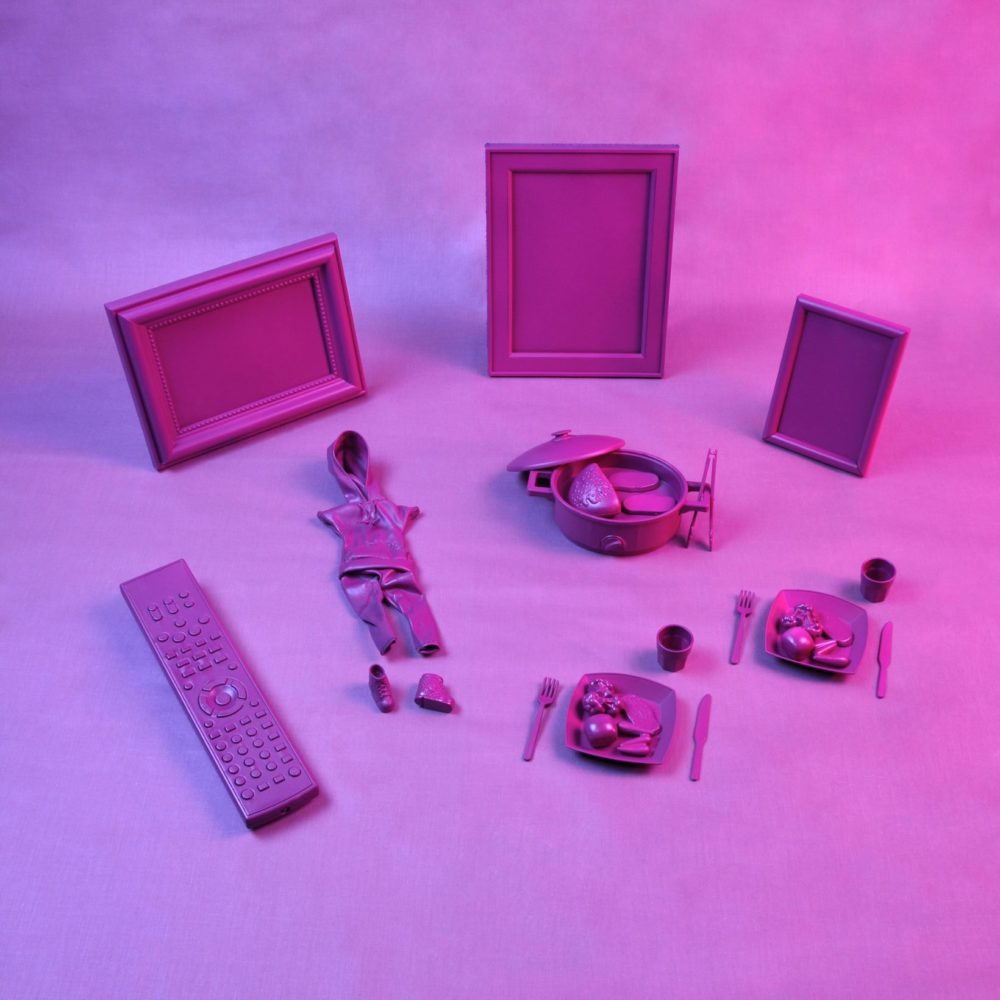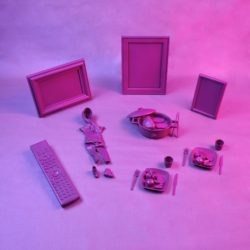Newcomb Art Museum
Art for Humanity’s Sake
Newcomb Art Museum’s new exhibition addresses critical issues facing incarcerated or formerly incarcerated women
Published: March 1, 2019
Last Updated: May 31, 2019

Photo by Ryn Wilson.
Ryn Wilson, Still Human, Still Lifes: Yolanda Ford, II, 2018. Archival inkjet print, 18x18 inches. Response: family photos, hot food, clothes, TV show preference.
Created in partnership with two formerly incarcerated women, Syrita Steib-Martin and Dolfinette Martin, Per(Sister) presents new works from more than thirty artists from across America (including New Orleans’ own MaPo Kinnord, Lee Deigaard, L. Kasimu Harris, Devin Reynolds, Jackie Sumell, Carl Joe Williams, Keith Duncan, and Cherice Harrison-Nelson, among others) based on the intimate stories of thirty formerly and currently incarcerated women, or “PerSisters.” Stories of loss, hope, despair, survival, triumph, and persistence are shared in a variety of forms: voice recordings, photographic portraits, informative illustrations, sculptures, paintings, songs, performances, and even a custom Mardi Gras Indian suit, which simultaneously demonstrate the universal struggles faced by communities affected by incarceration and the personal resilience of each woman featured.
“For a museum looking to address social justice issues through the lens of the arts as Newcomb does, and being aware of Louisiana’s recent reputation as the ‘incarceration capital of the world,’ it seems only reasonable to look into the prison-industrial complex, especially as it is one of the most critical aspects affecting our immediate communities,” said museum director Mónica Ramírez-Montagut. “The objective of this art exhibition is to educate our students and museum visitors on the issues that have made our state infamous and address the tremendous lack of awareness and basic knowledge of the human experience of the justice system.”
Per(Sister) examines such themes as the root causes of female incarceration, the impact of incarcerating mothers, the physical and behavioral health toll of incarceration, and the challenges and opportunities around reentry. Intended to challenge misconceptions and uninformed assumptions, the exhibition aims to use art as a vehicle for communicating the myriad issues as identified and expressed by the women. By providing a multitude of access points to the PerSisters’ stories, including a participatory garden constructed by artist Jackie Sumell among other interactive elements, the exhibition invites everyone to engage with the show and the issues it describes.
—
Artist Statement: Ryn Wilson

These photographs are part of an ongoing project that asks formerly incarcerated women the question, “What items did you miss most while incarcerated?” The responses are interpreted into still lifes. The goal of this project is to put forth the humanity of incarcerated women while highlighting the inhumanity of the system. Most of the responses are everyday objects that we take for granted, such as a glass of water when we want it or enough toilet paper. This project focuses specifically on women because they have a set of issues that are too often overlooked in an already overlooked topic. The system disproportionally affects women of color, and they often receive harsher sentences and worse treatment because of the sentiment that women are breaking both the law and social norms. Female incarceration has a massive impact on children and families, and sexual assault factors into the equation both inside and outside the prison walls. The hope is to bring attention and compassion to these issues through creating these images.